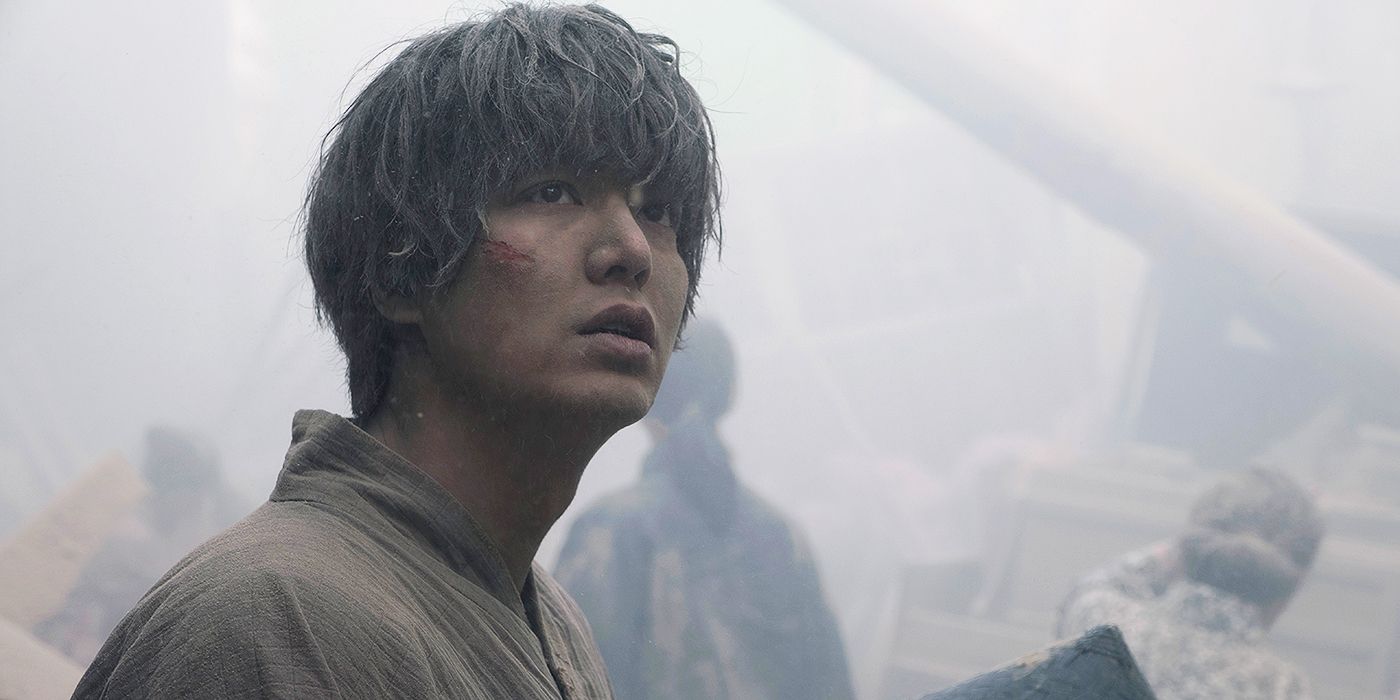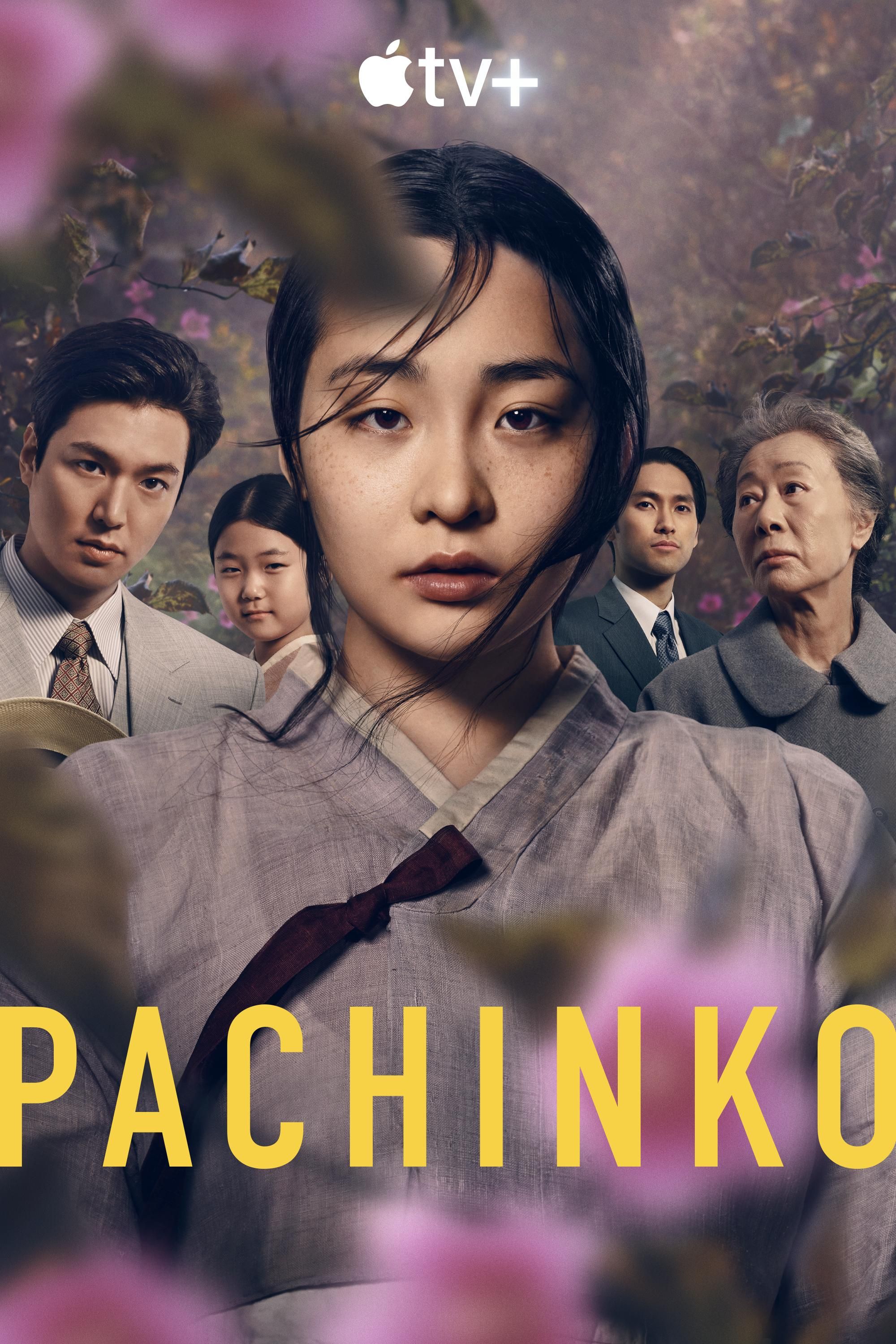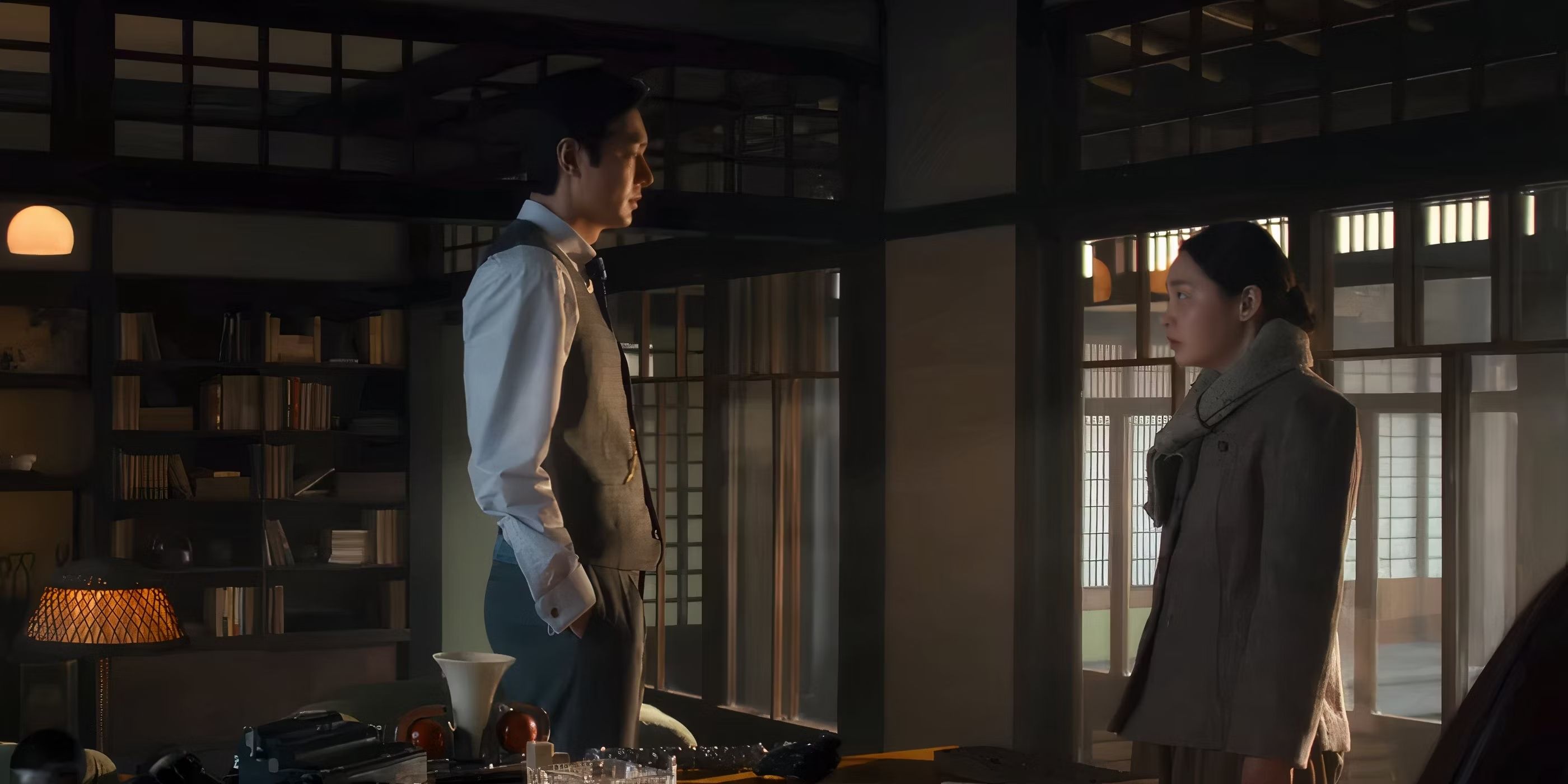Editor’s note: The below recap contains spoilers for Pachinko Season 2 Episode 1.
The Big Picture
- The captivating
Pachinko
Season 2 continues the struggles faced by Sunja and Solomon. - The young actors playing Noa and Mozasu shine in showcasing the discrimination Koreans faced in Japan.
- The contrasts between Sunja’s sacrifices and Solomon’s privileges are portrayed effectively and starkly.
Season 1 of Pachinko, which aired back in 2022, introduced characters that one can’t help but root for. As Koreans living in Japan, both Sunja (played in her youth by Minha Kim and in her elder years by Oscar winner Youn Yuh-jung) and her grandson, Solomon (Jin Ha), face endless discrimination. They are penalized merely for their heritage. But these characters are survivors, who never lose their morality or their desire to provide a better life for their family. With storytelling that spans generations and stunning cinematography, in its first eight episodes, Pachinko proves to be a captivating and moving series that illustrates themes of identity and belonging.
Although two years have passed since Pachinko last aired, it’s easy to get swept up again in the majestic setting and intriguing storylines. The series continues to switch back and forth between perspectives (that of Sunja and Solomon) within each episode, which means that there are scenes that abruptly change from 1945 to 1989. This helps create a throughline to show how Sunja’s actions as a young woman have led to the position her family is in several decades later. Without Sunja’s devotion to her children, Solomon never would have been able to chase his dreams later on. It is a poignant reminder of how much gratitude we owe prior generations.
The War Continues in ‘Pachinko’ Season 2
Season 2 opens up at a train station in Osaka in 1945. Koh Hansu (Lee Minho) meets with one of his employees, who holds up a material that looks like a large rock. It is unclear at first what this object is, but later in the episode, Hansu reveals its true worth. The next scene is a teenage Noa (Kim Kang-hoon) and a young Mozasu (Eunseong Kwon) running through the Osaka marketplace. The children seem lighthearted, even though it becomes clear right away that the entire neighborhood is struggling after enduring several years of war. Sunja is selling kimchi (their only source of income since her husband, Isak, was arrested). She comments to a friendly customer named Mr. Kim (Kim Sungkyu) that she will do whatever it takes to earn money for her children. All of a sudden, American planes fly over ominously, dropping objects from the sky. At first, the market-goers all look terrified, until they realize that the planes are just dropping leaflets. The leaflets implore the Japanese people to plead with their emperor to halt the war.
Pachinko always finds ways to illustrate the real-life discrimination that Koreans experienced during this time in Japan. The two young brothers are dealing with racist behavior quite differently. While they’re in school, they’re both teased in their separate classrooms about the Korean food they have brought for lunch. Mozasu, although still a young child, takes the teasing in stride, stands up on his desk, and loudly proclaims that he loves his food. Although he’s admonished as soon as the teacher walks in (and receives a punishment of standing in the corner with his arms raised), he seems to have earned his classmates’ respect. Noa, on the other hand, is ridiculed by his classmates, and he just sits there and takes it. He continues reading his book, never even glancing up or returning the taunts. When Noa speaks with a man at their church about the abuse, the man responds, “If you don’t like it, don’t be Korean.” He notes that the stress of the war is weighing on everyone and that violence is occurring in many homes and out in the streets because everyone is so desperate. It is worth noting that the two young actors playing Mozasu and Noa are astoundingly good in these roles, with none of the cloying precociousness of some child actors. Just like the adult actors, they elevate their scenes to help demonstrate how discrimination embeds itself in the lives of Sunja’s children.
The effects of the war are apparent everywhere. Sunja and her boys must take part in military drills, where they practice using spears to stab straw dummies that are stand-ins for the enemy (although at this point, they aren’t sure whether that would be the Russians or the Americans). During the practice, Sunja sees her friend, Jiyun (Jeong Sori), who has clearly been beaten (an example of that aggression playing out in the home). Sunja tells her that Isak has been away for seven years now, and that it has been three months since she last received a letter from her mother. The two talk about the need to hide their sadness from their children. Jiyun has the idea of selling rice wine illegally on the black market to help earn money for their families.
Sunja Is Willing To Sacrifice Everything for Family in ‘Pachinko’ Season 2’s Premiere
Sunja is initially reluctant to agree to Jiyun’s plan. It is a surefire way to get arrested, and then her children would be left parent-less. But a conversation with her sister-in-law, Kyunghee (Jung Eun-chae) helps to convince her to take the risk. She reminds Sunja that the children are almost starving and that she considered serving them ration rice with worms in it simply so that their bellies would be full. Before Sunja sets out to help Jiyun, Kyunghee makes her promise that she will return, and Sunja does, but it is a moment when the two women acknowledge how truly risky this venture could be. After Jiyun and Sunja finish making the wine, Sunja sets off to go to the black market to sell it (she has enough confidence in her skills since she has successfully sold so much of her kimchi). As she is leaving, she hears Jiyun’s husband beating her again.
But Sunja is not the only one who is willing to make a sacrifice to help her family. In one scene, Noa receives top grades in his classroom. His teacher holds him back to speak with him and notes that he should be considering taking an entrance exam for higher education. Noa quickly shuts him down, saying that he needs to remain in the city so that he will be home when his father returns. The teacher reminds him that his mind can help open doors for him, and he hands him an entrance exam guide, which has the teacher’s name written in it. Later in the episode, Hansu will note that the teacher is actually Korean, but has been hiding it in order to pass as Japanese and avoid discrimination.
Kyunghee opens the door that night to a terrified Jiyun, who reveals that there was a raid on the black market. Their worst fears have come to fruition, and Sunja has been arrested. Several women who are also under arrest receive their sentences (which range from a few weeks to many months), but when it comes to Sunja’s turn, she shockingly receives no punishment and is released. When she exits the jail, Mr. Kim is there waiting with a car, insisting that Sunja come with him and that everything will soon be explained. Sunja is taken to a large mansion, and once inside, Hansu is there waiting for her. He reveals that he has kept a close eye on her over the years and that Mr. Kim was actually a plant put there to report back to him on Sunja’s actions. He explains that the material shown in the beginning of the episode is actually called tungsten, and it is used in planes, missiles, and grenades (all materials essential for the war effort), and he has been sourcing it for the Japanese troops.
In an earlier scene, Hansu is at a dinner hosted by his father-in-law, and after being insulted by another man (who is clearly racist against Koreans), Hansu goes for a walk. He overhears two of the guests discussing the imminent bomb that they know the Americans will be dropping on Japan. While talking to Sunja, Hansu lets her in on this insider knowledge. She and her sons are in danger if they stay in Japan any longer. He claims to have found a place that Sunja, her boys, and Kyunghee can all use as a refuge in the countryside, where they will be safe. Sunja refuses, saying she loves her husband, and will never leave him. Hansu is frustrated by her stubbornness, but he is also shocked to discover that Sunja truly cares about Isak (since Hansu had always assumed that it was more of a marriage of convenience). Sunja leaves, denying that she will ever take Hansu up on his offer.

Related
The Harrowing True Story of the Great Japan Earthquake and Massacre in ‘Pachinko’
The history behind the Kantō earthquake of 1923 is bloodier than you realize.
The Struggle Is Real for Solomon in ‘Pachinko’ Season 2, Episode 1
Solomon’s story picks up shortly after Season 1 ended. It is 1989, in Tokyo, and Solomon is trying to pick up the pieces of his career after ruining the business deal depicted in the first season. Solomon is trying to get funding for a new venture and meets with two businessmen who question his mental state after the implosion. Solomon insists he is capable of turning things around, claiming that everyone in the deal was “too emotional.” But he leaves the meeting with no capital investment from them. Solomon tries hitting up a friend for money but is also unsuccessful. Things seem to be turning around when he has lunch with a friend from childhood named Tetsuya (Ryotaro Sugimoto). Although Tetsuya notes that Katsu Abe (Yoshio Maki) is on the warpath after Solomon’s prior performance, Tetsuya is willing to invest. He appreciated Solomon’s friendship and his kindness in their youth and wants to return the favor now.
Solomon then attends his father’s grand opening of his pachinko parlor. The bright lights of the machines and the hustle and bustle are a sharp contrast to the other scenes of the depressing years of the war. Older Mozasu (Soji Arai) is beaming with pride at all the people who are attending his opening, and he hands Solomon a check from him and Sunja for $700,000. Mozasu wants to show how much he believes in his son and is proud to invest in Solomon’s venture. But Solomon is taken aback and asks his father where the money came from. Mozasu tells him he took a mortgage out on the new business, but Solomon is dismayed that his father is simply adding to his debt.
Solomon receives a call from Tetsuya, who apologizes profusely, but says Abe-san heard about his investment and told him that Solomon was conning him. He threatened to ruin both Tetsuya and Solomon, and now Tetsuya is pulling his investment. After taking the call, Sunja asks Solomon to come with her to pick up a cake she ordered for the grand opening (likely trying to distract her grandson from his bad news). In the grocery store, Sunja states to the man behind the bakery counter that this isn’t the cake she ordered. Instead of rectifying the mistake, the man starts insulting Sunja because she is Korean, saying he must not have been able to understand her “half-assed Japanese.” He continues to berate her, even going so far as to say “people like you.” Solomon completely loses his cool, even though Sunja is embarrassed and pleads for them to just leave. Solomon screams at the man until he notices that everyone in the store is staring at them.
After they leave, Solomon tears up the check Mozasu gave him. He unleashes his anger at Sunja, telling his grandmother, “I can’t live always feeling sorry for you.” It’s heartbreaking to watch Solomon take out his frustration on the one person who has sacrificed so much just so that Solomon can lead this privileged life. The episode ends with Solomon showing up at an award ceremony for Abe-san and staring him down while he is up on stage making a speech. Solomon doesn’t make a scene, but it’s obvious that he is sending a message that he isn’t one to be threatened.
There are many fascinating connections between the two timelines, particularly one that goes back and forth between Sunja sacrificing her freedom in order to make sure her children have enough to eat, and Solomon standing in the grocery store among aisles and aisles of products. The way Sunja was willing to risk everything simply to buy food contrasted with Solomon having everything at his fingertips is a riveting way to show the stark differences between the two generations. In just its first episode, Pachinko has effectively set up more storylines that will further illustrate the themes of family and love that the series has already become known for.

Pachinko
Pachinko’s Season 2 premiere sets up a captivating continuation of Sunja and Solomon’s stories.
- It is easy to get absorbed right back into the action of the series.
- The young actors playing Noa and Mozasu steal every scene they’re in.
- The contrasts between Sunja’s life and Solomon’s are striking and effectively portrayed.
- Some of the switches between time frames can be a bit abrupt.
New episodes of Pachinko Season 2 premiere Fridays on Apple TV+.
Watch on Apple TV+

